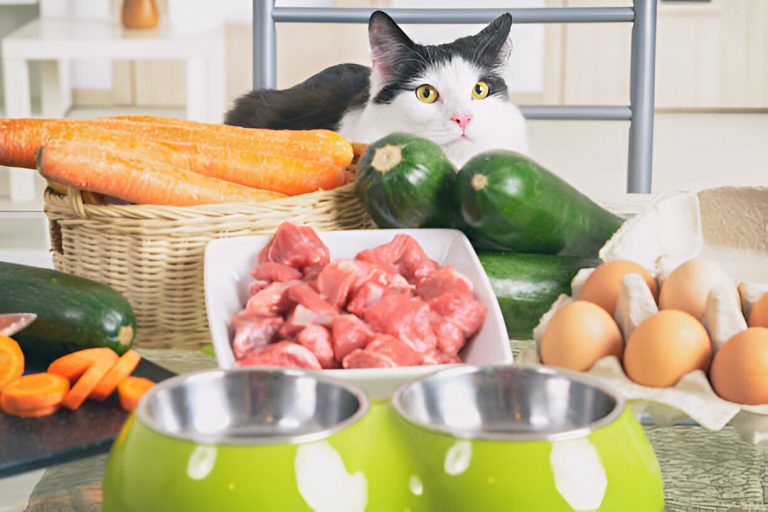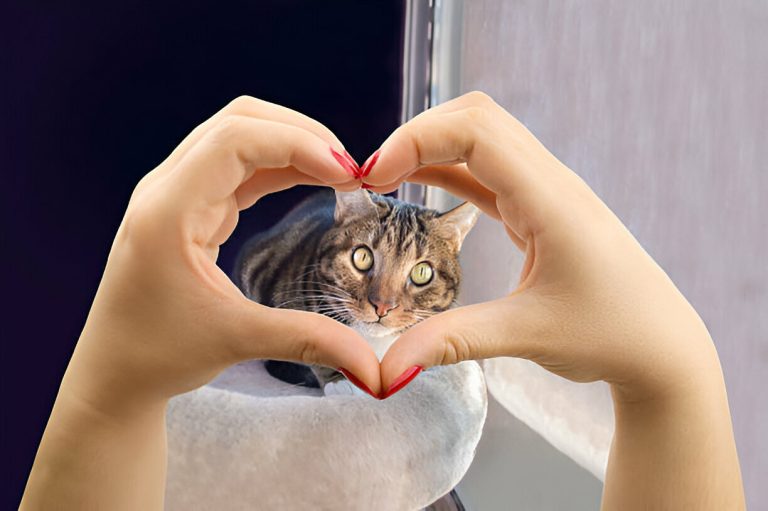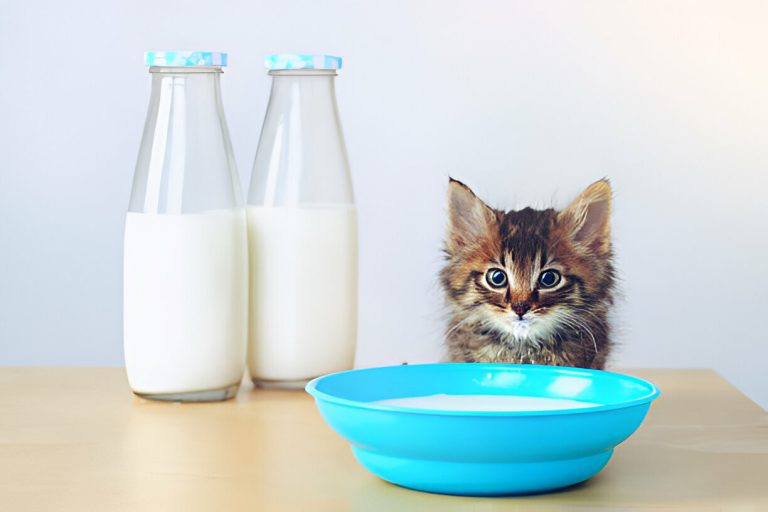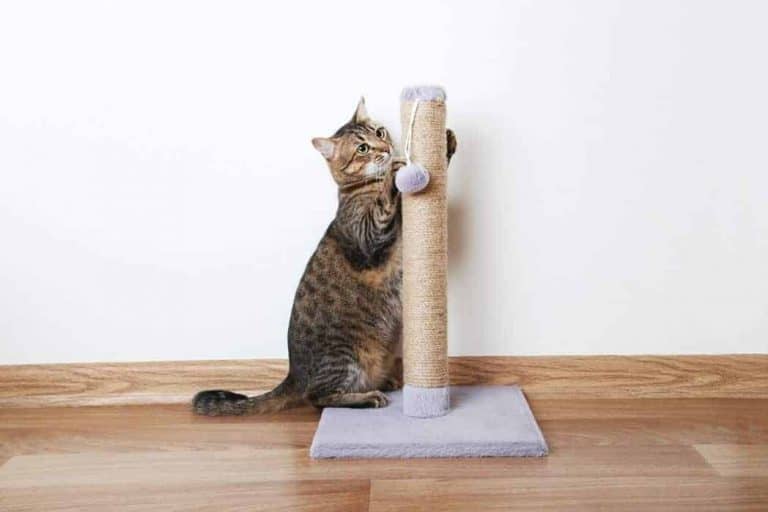Famciclovir for Cats: Managing Feline Viral Infections with Care

Famciclovir, originally developed for the treatment of human herpes virus infections, has found its place in veterinary medicine as an effective antiviral medication for cats. Its use in felines primarily addresses infections caused by feline herpesvirus 1 (FHV-1), a common pathogen responsible for upper respiratory diseases and ocular problems in the feline population. The versatile antiviral agent undergoes metabolic conversion into its active form, penciclovir, within the feline body, where it hinders viral replication without undue harm to host cells.
The impact of Famciclovir in the management of feline viral infections is significant, given that FHV-1 is a widespread and persistent adversary in the cat world. Upon administration, Famciclovir is effective in mitigating the clinical signs associated with FHV-1, such as sneezing, conjunctivitis, and corneal ulcers. It offers the advantage of a high oral bioavailability in cats, meaning more of the drug reaches systemic circulation and, consequently, the site of viral infection. This pharmacokinetic feature, coupled with the comparatively infrequent dosing regimen, enhances its appeal for both veterinarians and pet owners, offering a less stressful treatment schedule for the feline patients.
The penultimate segment of this discourse will shed light on strategies for administering famciclovir to the often willful feline patient, a task that sometimes requires equal parts tenacity and creativity. It will also highlight the importance of a collaborative approach between veterinarian, cat, and caregiver in managing feline viral infections with famciclovir. Furthermore, we acknowledge the potential challenge of pharmacological resistance and the nuanced balance between therapeutic efficacy and the preservation of feline quality of life.
Within this framework, it is apparent that managing feline viral infections with care transcends mere prescription and administration of antiviral agents; it involves a holistic approach that conjoins pharmaceutical acumen with compassionate animal husbandry. Advancements in understanding feline pharmacology continue to refine the administration of famciclovir, ensuring it aligns with the idiosyncrasies of cat physiology and behavior. The narrative ahead promises to demystify the complexities of dosing, shedding light on innovative techniques for ensuring the timely and effective delivery of this crucial medication to our feline friends, whose cooperation, it must be noted, is not always guaranteed.
- Famciclovir is an antiviral medication effectively used in the treatment of feline herpesvirus (FHV-1), which can cause respiratory and ocular issues in cats.
- As an oral drug, famciclovir is often preferred for its ease of administration and its ability to be compounded into a more palatable form for felines.
- Proper dosing of famciclovir for cats is critical and should be determined by a veterinarian based on the cat’s weight, age, kidney function, and the severity of the infection.
- Feline patients typically show improvement within a few days of starting treatment, but the full course should be completed to prevent recurrence or resistance.
- Side effects of famciclovir in cats are rare and generally mild, but may include gastrointestinal upset such as nausea or diarrhea, and should be monitored by pet owners.
- It is important not to abruptly stop treatment with famciclovir, as it may lead to a resurgence of the virus and complicate the infection management.
- Pet owners should maintain regular communication with their veterinarian to report on the cat’s progress and any potential side effects.
- Research continues to evaluate the effectiveness and optimal dosage of famciclovir for cats, underlining the importance of following the latest veterinary guidelines and protocols.
- As famciclovir is not a cure for FHV-1, managing feline viral infections also involves supportive care measures and possible lifestyle changes to help bolster the cat’s immune system.
- Preventive measures, such as vaccination and minimizing stress, are essential to reduce the likelihood of infection or reactivation of the virus in feline companions.
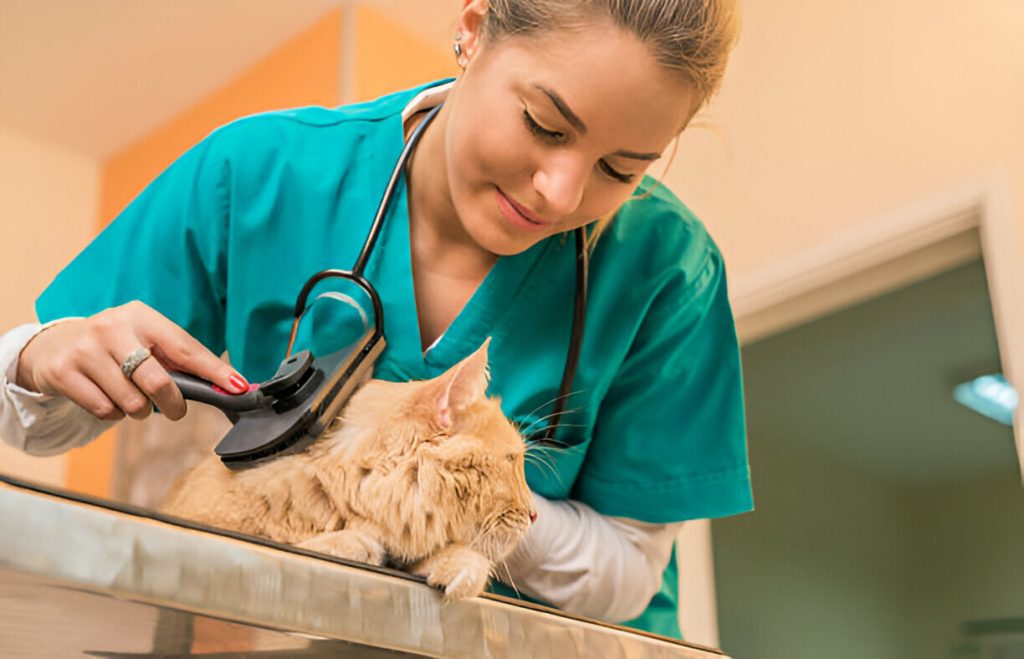
How Does Famciclovir Help Cats With Viral Infections?
Famciclovir: An antiviral medication that is prescribed for cats, originally developed and used for treating human herpesvirus. For felines, it’s often used for feline herpesvirus 1 (FHV1) which causes upper respiratory and eye infections. Feline Herpesvirus 1 (FHV1): A highly contagious virus that affects cats, causing symptoms like sneezing, conjunctivitis, and discharge from the eyes and nose. Antiviral: A class of medication used to treat viral infections by inhibiting the development or replication of the virus, so helping to manage symptoms and reduce the duration of the illness.
Famciclovir for cats is a pivotal treatment in the management of viral infections such as feline herpesvirus (FHV-1), offering relief from the eye, respiratory, and dermatological symptoms associated with these common contagions. Originally an antiviral drug for humans, famciclovir has been reliably repurposed for use in veterinary medicine after its effectiveness in reducing viral replication and the severity of symptoms in cats was established. This medication is especially valuable since FHV-1 can lead to chronic health issues in cats and is a prevalent cause of upper respiratory infections in the feline community. Administered orally, famciclovir works best when given early in the course of the infection, with the guidance and prescription of a veterinarian to ensure the correct dosage and to monitor any side effects or interactions with other medications the cat may be taking.
The Importance of Regular Pet Checkups
In the realm of pet care, routine veterinary visits stand as a cornerstone for maintaining animal health. Cats, much like their human companions, benefit from periodic medical assessments to identify potential issues before they become severe. During these checkups, veterinarians conduct thorough physical examinations to check for any signs of illness or discomfort that pets may not outwardly display. They palpate the abdomen for abnormal swellings, assess the condition of the coat and skin for parasites or diseases, and examine the eyes and ears for infections or abnormalities. Blood tests are often a part of these checkups, providing vets with crucial data on the pet’s kidney, liver, and heart function, as well as their immune system status. Early detection of conditions through these evaluations is vital, enabling prompt treatment and increasing the chance for a favorable outcome.
Understanding Antiviral Medications for Pets
The world of veterinary medicine includes a variety of antiviral medications designed to combat virus-induced ailments in pets. While the medicines are not the primary focus, understanding their function is imperative for caregivers. Antiviral drugs operate by inhibiting the replication of the virus within the host’s cells, effectively reducing the viral load and aiding in the recovery process. Selection of the appropriate antiviral medication involves considering factors such as the type of virus, the severity of the infection, and the individual animal’s health status. Some drugs are administered orally in tablet or liquid form, while others may require injection. Due to potential side effects, such as gastrointestinal disturbances or adverse reactions, close supervision by a veterinarian is crucial to ensure both the efficacy of the treatment and the safety of the animal.
Boosting Feline Immune Health
Maintaining a robust immune system in cats is imperative to fend off various viral infections. To support immune function, a balance of good nutrition, regular exercise, and a stress-free environment is essential. Nutritional supplements that contain antioxidants, such as vitamin E and C, and other immune-boosting elements like zinc and selenium can be integrated into a cat’s diet to promote healthy immune responses. Probiotics are increasingly recognized for their role in gut health, which is closely linked to immunity. Regular playtime and environmental enrichment can also boost a cat’s physical and mental health, keeping the immune system in top condition. Stress reduction is another crucial aspect, as stress can suppress immune function; ensuring a peaceful home environment with access to safe hiding spots and familiar objects can significantly contribute to a cat’s overall well-being.
Alternative Therapies for Pet Health Maintenance
As pet owners seek holistic approaches to care, alternative therapies have gained traction as adjunct treatments for improving pet health. Acupuncture, for instance, is an ancient practice that has seen contemporary application in veterinary medicine. This therapy involves the insertion of fine needles into specific points on the body to alleviate pain, improve circulation, and promote healing. Chiropractic adjustments can also be employed to address musculoskeletal issues in pets, potentially enhancing mobility and comfort. Moreover, herbal remedies may offer supportive care for various conditions, even though they’re not a direct substitute for antiviral medications. These treatments should be used in conjunction with, rather than as replacements for, traditional veterinary care, and always under the guidance of professionals trained in their safe application on animals.
Technological Advancements in Veterinary Diagnostics
The field of veterinary diagnostics has seen impressive technological growth, enhancing the ability to diagnose and monitor pet health issues accurately. Advanced imaging techniques such as MRI (Magnetic Resonance Imaging) and CT (Computed Tomography) scans provide detailed views of an animal’s internal structures, helping to diagnose conditions that might otherwise go unnoticed. Similarly, portable ultrasound devices allow vets to perform real-time imaging in a non-invasive manner, even during home visits. On the microscopic scale, cutting-edge blood analyzers can deliver comprehensive results within minutes, vastly accelerating the diagnostic process. These technological advancements empower veterinarians to make quicker, more informed decisions, ultimately improving the level of care they can provide to their animal patients.
1. What is Famciclovir, and how does it work to treat viral infections in cats?
Famciclovir is an antiviral medication that is commonly used in humans and has been repurposed for use in veterinary medicine, specifically for treating feline viral infections. It works by inhibiting the replication of viral DNA, thus preventing the virus from proliferating and allowing the cat’s immune system to fight back more effectively. Famciclovir is especially effective against Herpesvirus infections in cats, which can cause respiratory and eye issues.
Famciclovir is a prodrug, which means it is converted into its active form, penciclovir, once inside the cat’s body. Penciclovir then interferes with the viral DNA polymerase enzyme, essential for the virus to replicate its genetic material. By disrupting this process, Famciclovir helps to reduce the severity and duration of viral outbreaks, aiding in the management of symptoms and providing relief for the infected feline.
2. What are the common side effects of Famciclovir in cats?
While Famciclovir is generally well-tolerated by most cats, like all medications, it may cause side effects in some animals. The most common side effects reported are mild and often include gastrointestinal issues such as vomiting or diarrhea. Some cats might also experience a temporary lack of appetite or lethargy. It is important to monitor your cat for any adverse reactions after administering the medication and report any concerns to your veterinarian.
Less frequently, more serious side effects could occur, such as liver enzyme elevations, blood cell count changes, or skin rashes. Allergic reactions are also possible, though rare. If a cat shows signs of a severe reaction, such as difficulty breathing, swelling of the face, or hives, seek immediate veterinary attention. Your vet may need to adjust the dosage or switch to a different medication depending on the severity and type of side effects experienced.
3. Can Famciclovir cure feline herpesvirus permanently?
Famciclovir is not a cure for feline herpesvirus; it is used to manage the symptoms and reduce the frequency and severity of flare-ups. Feline herpesvirus is a lifelong infection in cats. Once a cat is infected, the virus remains dormant in the body and can reactivate periodically, particularly during times of stress or immunosuppression. Famciclovir helps to control these flare-ups but does not eliminate the virus from the cat’s system.
By managing the symptoms effectively, Famciclovir can improve a cat’s quality of life and prevent secondary complications associated with herpesvirus infections, such as eye damage or upper respiratory infections. While there is no permanent cure, consistent treatment and supportive care enable many cats to live relatively normal and comfortable lives despite the chronic nature of the virus.
4. Is Famciclovir safe for kittens?
Famciclovir is often prescribed for kittens with viral infections; however, as with all medications, it should be used with caution and under the direct supervision of a veterinarian. Kittens have different dosing requirements, and because their organs are not fully developed, they may be more sensitive to medications. Your veterinarian will determine the appropriate dose based on the kitten’s weight, age, and overall health condition.
It is crucial to follow the vet’s recommendations closely when administering Famciclovir to kittens to minimize the risk of side effects and ensure the medication is effective. Close monitoring for signs of adverse reactions is important, as adjustments to the treatment regimen might be necessary if any issues arise. Your veterinarian is the best source of information regarding the safety and appropriateness of Famciclovir for treating viral infections in kittens.
5. How long does it take for Famciclovir to start working in cats?
The onset of action for Famciclovir in cats can vary depending on several factors, including the severity of the infection, the individual cat’s metabolism, and whether the treatment was started early in the course of the viral outbreak. Generally, some improvement in symptoms may be observed within the first few days of starting therapy. However, it might take longer for the full effect to be noticeable.
Consistent administration of the medication as prescribed is essential to achieve the best results. Failure to administer the drug regularly can result in suboptimal outcomes. If no improvement is observed after a reasonable period, or if the cat’s condition worsens, it is vital to consult your veterinarian for further advice. They may need to re-evaluate the diagnosis, adjust the dosage, or explore additional treatment options.
6. Can Famciclovir be used alongside other medications for cats?
Famciclovir can often be safely used in conjunction with other medications, but it is imperative to disclose all current medications, supplements, and treatments your cat is receiving to your veterinarian. Potential drug interactions can occur, and your vet can help you navigate these risks by adjusting dosages or timing of administration, or by choosing suitable alternative treatments if necessary.
It is particularly important to be cautious with medications that may interact with the liver enzymes responsible for metabolizing Famciclovir. Ensuring clear and open communication with your veterinarian regarding all aspects of your cat’s health and treatment plan helps to optimize the care your cat receives and minimizes the risk of adverse interactions. Always consult your veterinarian before starting any new medications while your cat is on Famciclovir therapy.
7. What dosage of Famciclovir is typically prescribed for cats?
The dosage of Famciclovir prescribed for cats can vary widely based on factors such as the size and weight of the cat, the type and severity of the infection, and the cat’s overall health status. Unlike medications that have a standard dose for all patients, Famciclovir dosing is highly individualized and must be determined by a veterinarian. Doses can range anywhere from 62.5 mg to 500 mg given one to three times per day.
It is essential to follow the dosage and administration guidelines provided by your veterinarian precisely. Overdosage could cause toxicity and severe side effects, while underdosing may fail to adequately control the infection. Never change the dose or frequency of administration without consulting your vet, as this could jeopardize the effectiveness of the treatment and your cat’s health.
8. Will my cat’s diet need to change when taking Famciclovir?
In most cases, your cat’s diet will not need substantial changes while taking Famciclovir. However, maintaining a balanced and nutritious diet is crucial for supporting your cat’s immune system during treatment for viral infections. Some cats might experience a temporary decrease in appetite or gastrointestinal side effects while on the medication, and in such instances, it might be necessary to adjust their diet or feeding methods to encourage eating and maintain proper nutrition.
It is sometimes recommended to administer Famciclovir with food to minimize gastrointestinal upset. If you have concerns about how your cat’s diet and medication might interact or if you notice a significant change in your cat’s eating habits, you should address these issues with your veterinarian. They can provide specific dietary recommendations that complement your cat’s treatment plan and overall health needs.
9. How should Famciclovir be stored to ensure its effectiveness?
Famciclovir should be stored in a safe, dry place at room temperature, away from direct sunlight, moisture, and heat. The medicine cabinet or a kitchen pantry, out of reach of pets and children, can be suitable locations. Proper storage helps to preserve the effectiveness of the medication by preventing degradation from environmental factors such as temperature fluctuations and humidity.
It’s also essential to keep Famciclovir tablets in their original container with the cap securely closed when not in use. Do not store the medication in areas where it might be exposed to contaminants or strong odors, which could affect its quality. Always check the expiration date before administering Famciclovir to ensure it’s safe for your cat to consume, and discard any expired or unused medication following the guidance of your veterinarian or local disposal regulations.
10. What if I miss a dose of Famciclovir for my cat?
If you miss a dose of Famciclovir for your cat, administer it as soon as you remember. However, if it’s nearly time for the following scheduled dose, you should skip the missing dose and continue with the regular dosing schedule. Do not give a double dose to make up for the missed one, as this could increase the risk of potential side effects.
Consistently following the prescribed dosing schedule is essential for the treatment to be effective. If you find it challenging to remember giving the medication on time, consider setting reminders or alarms. Should you miss multiple doses, discuss this with your veterinarian, as your cat may require a dosing adjustment or additional monitoring. It’s crucial to communicate any issues or concerns related to your cat’s medication regimen with your veterinary healthcare provider.
Final Thoughts
Famciclovir for cats has proven to be a vital antiviral medication in managing feline herpesvirus (FHV-1) and other viral infections, offering relief from symptoms and aiding in the reduction of outbreaks. Its effectiveness hinges largely on timely and accurate diagnosis, appropriate dosing, and a consistent treatment regimen. Safety profiles indicate that famciclovir is generally well-tolerated by felines, but it’s critical to follow veterinary guidance to avoid potential side effects and drug interactions. The benefits of famciclovir for cats extend beyond mere symptom management; it can also improve the quality of life for affected felines by reducing the severity and duration of infections. Veterinarian involvement is crucial in tailoring treatment plans specific to each cat’s needs, ensuring that the use of famciclovir is both safe and optimal for individual health statuses. As with any medication, the guardianship of responsible pet owners who observe their cats for any adverse reactions while on famciclovir is indispensable. Ultimately, famciclovir for cats stands as a beacon of hope for feline companions suffering from the discomfort and complications of viral infections, embodying the marriage of medical innovation with the compassionate care of our cherished pets.

